Table of Contents
Understanding Fantasy App Development
Fantasy app development encompasses the creation of digital applications that transport users to imaginative, otherworldly experiences. Unlike conventional apps focused on productivity or simple entertainment, fantasy apps create immersive alternate realities where users can explore, interact, and engage with fantastical elements. These applications span various formats, from elaborate role-playing games and interactive storytelling experiences to augmented reality adventures that overlay magical elements onto our physical world.
At its core, fantasy app development is about world-building—creating coherent, engaging digital environments with their own rules, aesthetics, and narratives. Developers craft these experiences by combining compelling storytelling with cutting-edge technology, creating applications that respond to user input in ways that feel magical and immersive. Whether through a mobile game that transports players to a medieval realm of dragons and wizards, or an AR experience that transforms city streets into pathways through an enchanted forest, fantasy app developers specialize in creating digital escapes from everyday reality.

What distinguishes fantasy app development from other forms of app creation is its emphasis on creating experiences that feel transformative and otherworldly. These applications often incorporate elements of mythology, folklore, and fantasy literature, reimagined through digital technology. The goal is to create not just an app, but a portal to another world—one where users can temporarily escape reality and immerse themselves in experiences beyond the ordinary.
Essential Skills for Fantasy App Developers
Creating compelling fantasy applications requires a unique blend of technical expertise and creative vision. Fantasy app developers must master a diverse skill set that spans both the artistic and technical domains, enabling them to bring imaginative worlds to life through code and design.
World-Building & Narrative Design
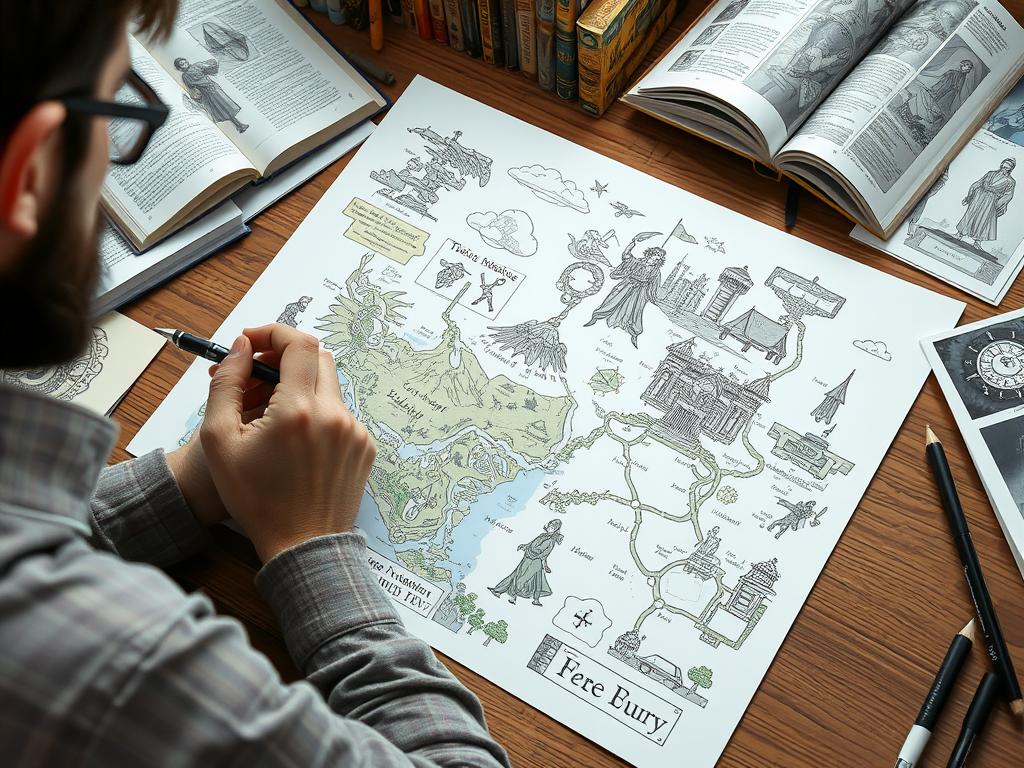
The foundation of any fantasy app is a well-conceived world with its own internal logic, history, and rules. Developers must understand how to craft coherent universes that feel both magical and believable. This includes creating compelling lore, designing consistent magic systems, and developing rich narratives that engage users and provide context for their actions within the app.
3D Modeling & Visual Design

Visual elements are crucial in fantasy apps, where immersion depends on convincing users they’ve entered another realm. Proficiency in 3D modeling, texturing, and animation allows developers to create characters, environments, and objects that populate their digital worlds. Understanding principles of fantasy art, color theory, and visual storytelling helps create aesthetically cohesive experiences.
Interactive Programming
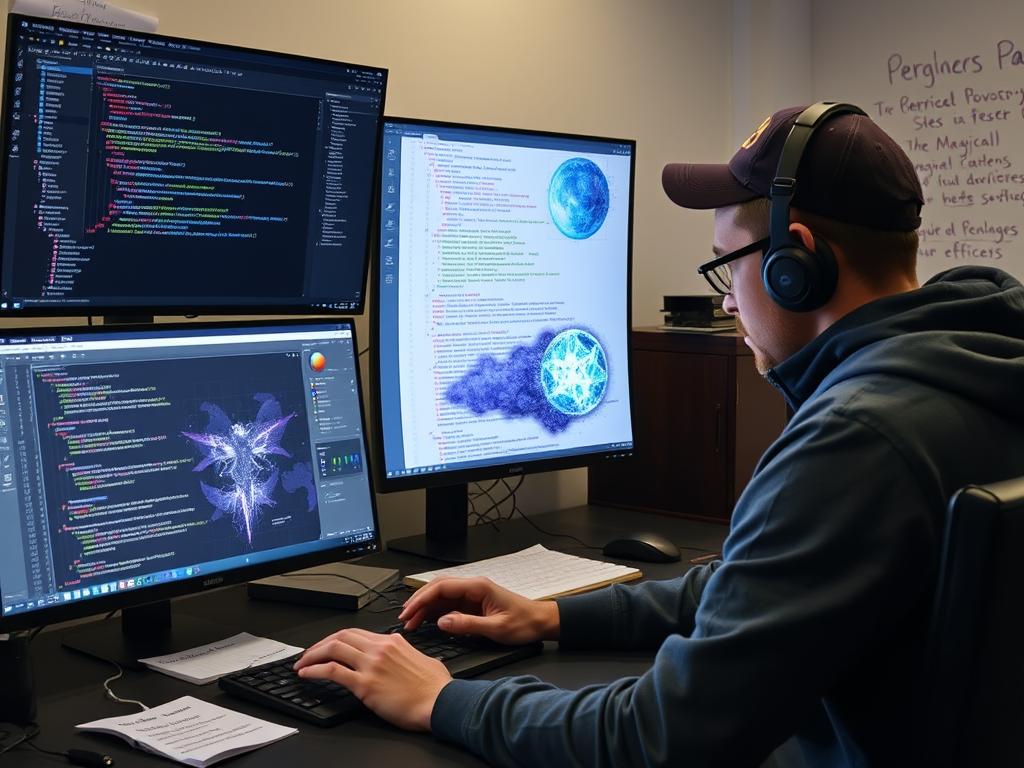
Fantasy apps thrive on interactivity—allowing users to cast spells, battle creatures, or transform their environment. Strong programming skills enable developers to create responsive, dynamic systems that react to user input in ways that feel magical. This includes implementing physics systems, AI behaviors, and complex interaction patterns that make fantasy worlds feel alive.
AR/VR Implementation

As augmented and virtual reality technologies advance, fantasy app developers increasingly need expertise in these immersive mediums. Understanding spatial computing, environmental mapping, and gesture recognition allows developers to blend fantasy elements seamlessly with physical reality or create fully immersive virtual worlds.
Sound Design & Music Composition

The auditory dimension is often overlooked but crucial for immersion in fantasy apps. Developers with skills in sound design can create magical audio effects, ambient soundscapes, and thematic music that enhance the user’s sense of presence in another world. Understanding how sound influences emotion and perception helps create more engaging experiences.
User Experience Psychology

Understanding how users perceive and engage with fantasy elements is essential for creating compelling experiences. Knowledge of cognitive psychology, player motivation, and flow states helps developers design apps that captivate users’ attention and create a sense of wonder. This includes understanding pacing, challenge balancing, and reward systems that keep users engaged.
Ready to Develop Your Fantasy App Development Skills?
Master the essential skills needed to create immersive fantasy worlds through comprehensive online courses designed for aspiring developers.
Top Tools and Technologies for Fantasy App Developers
The magic behind fantasy apps comes to life through powerful development tools and technologies. Modern fantasy app developers rely on sophisticated software suites that enable them to create increasingly immersive and interactive experiences. Here’s a look at the essential tools powering today’s fantasy app development landscape:
Game Engines
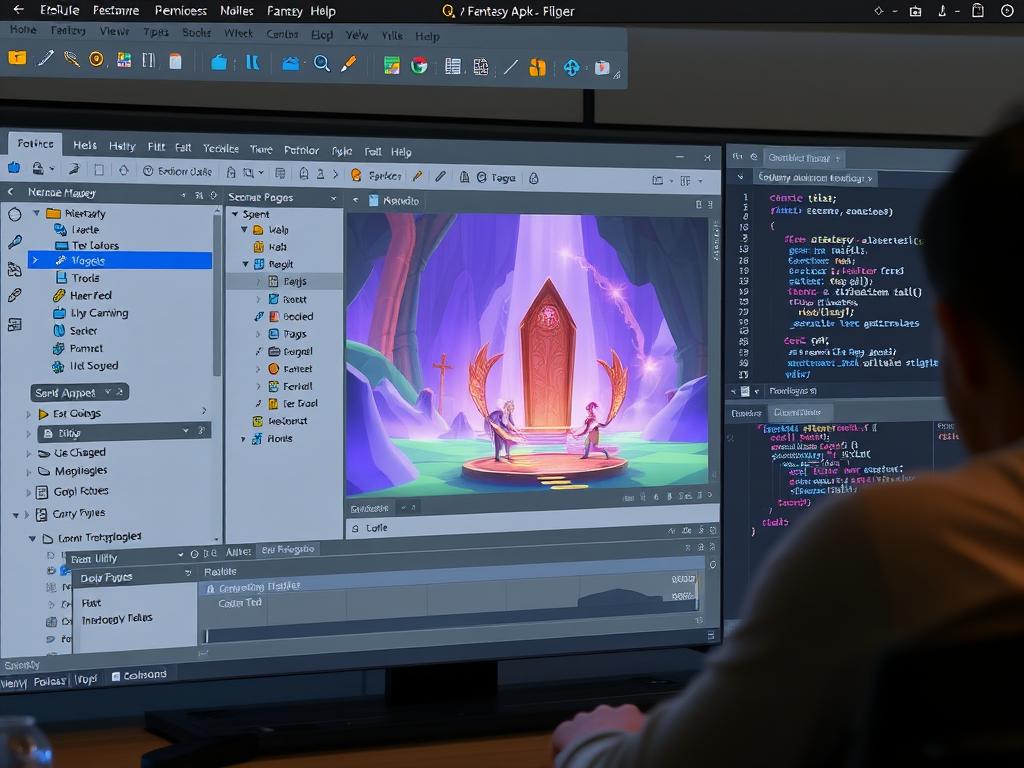
- Unity – Industry-standard engine with extensive fantasy asset libraries and cross-platform capabilities
- Unreal Engine – Known for photorealistic graphics and advanced particle systems perfect for magical effects
- Godot – Open-source alternative gaining popularity for indie fantasy app developers
3D Modeling & Animation
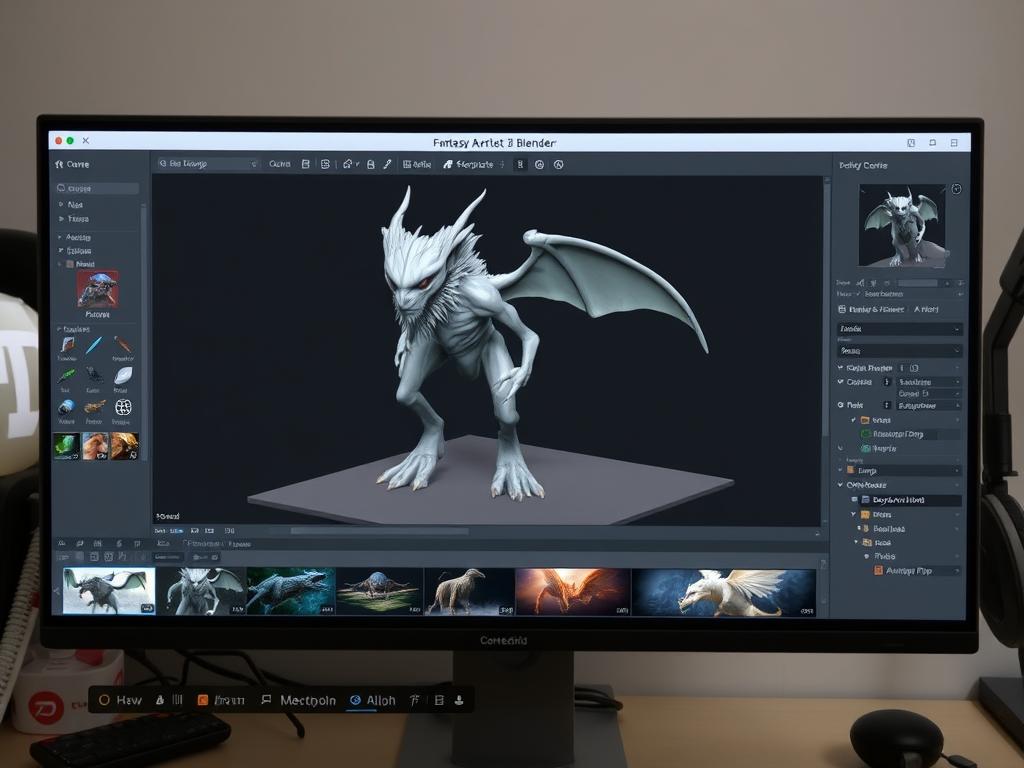
- Blender – Powerful open-source 3D creation suite for modeling fantasy characters and environments
- Maya – Industry-standard for high-end character animation and visual effects
- ZBrush – Digital sculpting tool for creating highly detailed fantasy creatures and characters
AR/VR Development
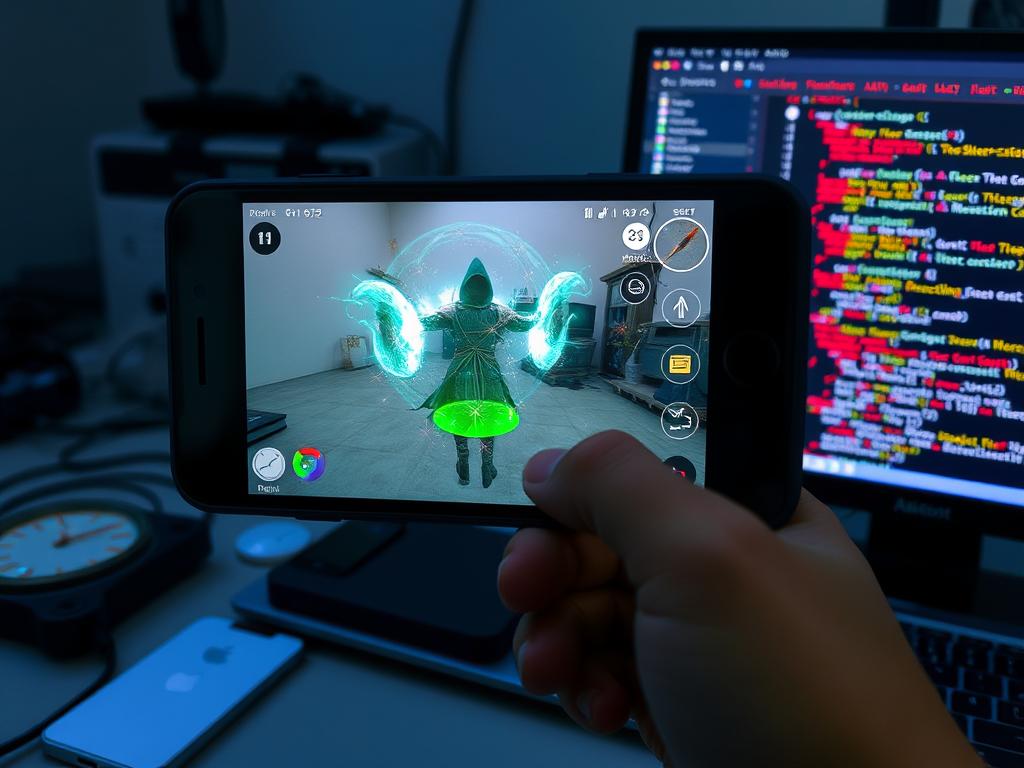
- ARKit/ARCore – Apple and Google’s AR development frameworks for mobile fantasy experiences
- Vuforia – Cross-platform AR development kit with advanced image recognition
- Oculus Development Kit – Tools for creating immersive VR fantasy worlds
AI and Procedural Generation

- TensorFlow – Machine learning framework for creating intelligent fantasy characters and adaptive gameplay
- Houdini – Procedural generation tool for creating vast, varied fantasy landscapes
- ChatGPT API – For generating dynamic storylines and NPC dialogues
Visual Effects & Particle Systems
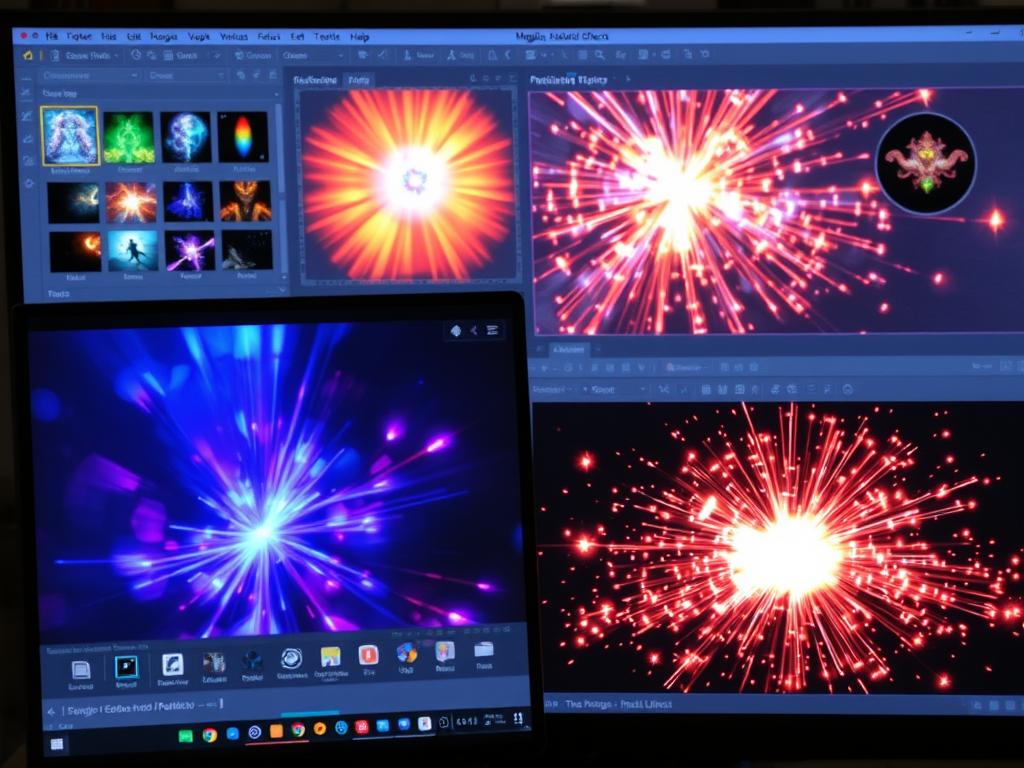
- Niagara (Unreal) – Advanced particle system for creating magical effects and environments
- Shuriken (Unity) – Versatile particle system for fantasy visual effects
- After Effects – For creating cinematic fantasy sequences and UI animations
Sound Design & Music

- FMOD – Interactive audio middleware for dynamic fantasy soundscapes
- Wwise – Advanced audio engine for immersive fantasy sound design
- Ableton Live – Digital audio workstation for creating original fantasy music and effects
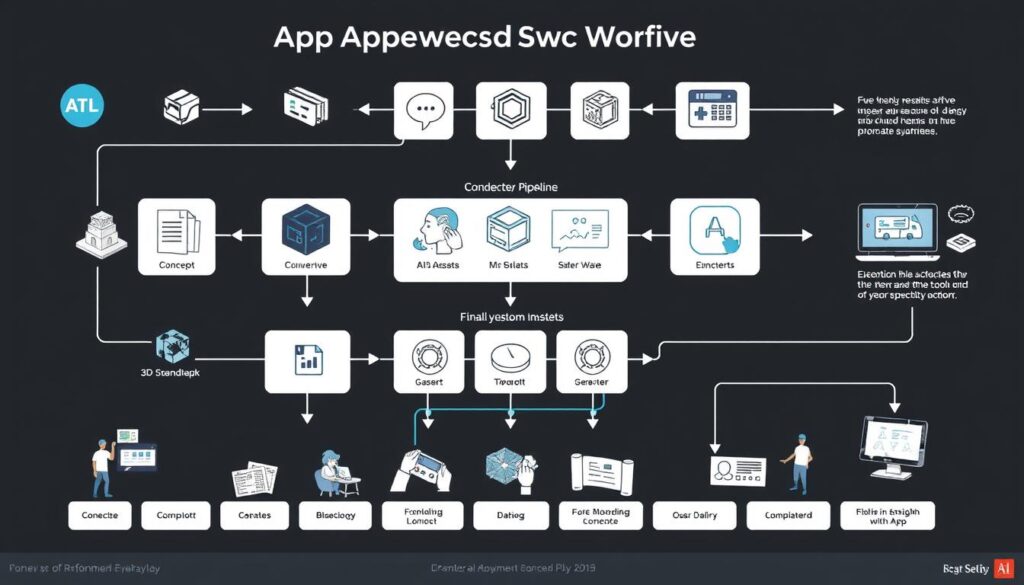
The most successful fantasy app developers typically master several of these tools, creating workflows that leverage each technology’s strengths. By combining these powerful tools, developers can create increasingly sophisticated fantasy experiences that push the boundaries of what’s possible in digital storytelling and interactive entertainment.
Get Started With Industry-Standard Tools
Many of the most powerful fantasy app development tools offer free versions or trial periods. Start building your skills today with professional-grade software.
Challenges in Fantasy App Development
Creating compelling fantasy applications involves navigating a unique set of challenges that test both technical abilities and creative vision. Understanding these obstacles is essential for developers looking to craft successful fantasy experiences.
Balancing Creativity with Technical Constraints
Perhaps the greatest challenge in fantasy app development is reconciling ambitious creative visions with technical limitations. Developers often envision vast magical worlds with complex systems and breathtaking visuals, only to face constraints in processing power, memory usage, and device capabilities. This is particularly challenging for mobile fantasy apps, where performance optimization becomes crucial.
Successful fantasy app developers have learned to make strategic compromises—using clever art direction to create the illusion of scale, implementing level-of-detail systems that allocate resources efficiently, and designing fantasy elements that create maximum impact with minimal technical overhead. The art lies in knowing where to invest resources for the greatest emotional and immersive return.


Maintaining User Engagement
Fantasy apps face unique challenges in sustaining user engagement over time. The initial wonder of entering a magical world can fade as users become accustomed to even the most fantastical elements. Developers must continually refresh the sense of discovery and progression that keeps users invested in their digital worlds.
This requires careful attention to pacing, challenge balancing, and narrative development. Successful fantasy apps often implement systems that evolve over time—introducing new magical abilities, expanding world areas, or deepening lore as users progress. Creating this sense of an ever-unfolding world requires sophisticated design thinking and content planning.
Creating Intuitive Interfaces for Magical Interactions
How does a user cast a spell, tame a dragon, or brew a potion through a touchscreen? Translating magical concepts into intuitive user interfaces presents a significant design challenge. Fantasy app developers must create control schemes that feel natural while conveying the wonder of performing supernatural actions.
The most successful fantasy apps develop consistent interaction languages—gesture systems, visual feedback, and interface metaphors that quickly become second nature to users while still evoking the fantasy theme. This often requires extensive prototyping and user testing to find the sweet spot between novelty and usability.
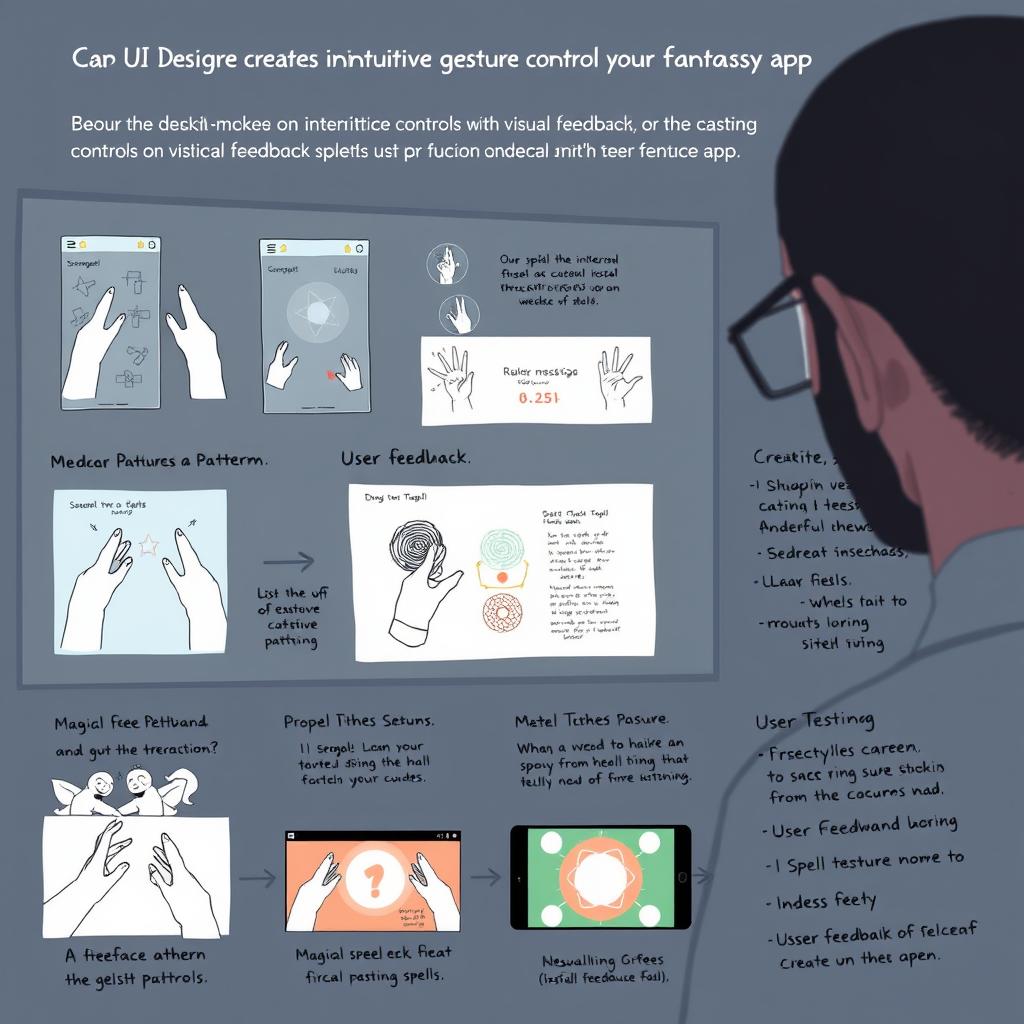
Successful Approaches
- Implementing progressive optimization techniques that scale visual quality based on device capabilities
- Creating procedurally generated content to extend gameplay while managing development resources
- Developing consistent “magical grammars” for user interactions that become intuitive over time
- Using narrative techniques to mask technical limitations (e.g., “magical fog” concealing draw distance limits)
- Implementing analytics to identify engagement drop-off points and address them proactively
Common Pitfalls
- Prioritizing visual spectacle over performance, leading to laggy experiences that break immersion
- Creating overly complex magical systems that users struggle to understand and master
- Front-loading all impressive content, leaving nothing to discover as users progress
- Implementing trendy features that don’t serve the core fantasy experience
- Neglecting platform-specific optimizations, resulting in poor experiences on certain devices
Navigating these challenges requires both technical expertise and creative problem-solving. The most successful fantasy app developers approach these obstacles as creative opportunities—finding innovative solutions that often become signature elements of their applications. By understanding common pitfalls and proven strategies, developers can create fantasy experiences that are both technically sound and magically immersive.
Successful Fantasy Apps: Case Studies
Examining successful fantasy apps provides valuable insights into effective development approaches and innovative features. These case studies highlight different aspects of fantasy app development excellence, from world-building to technical implementation.
Genshin Impact
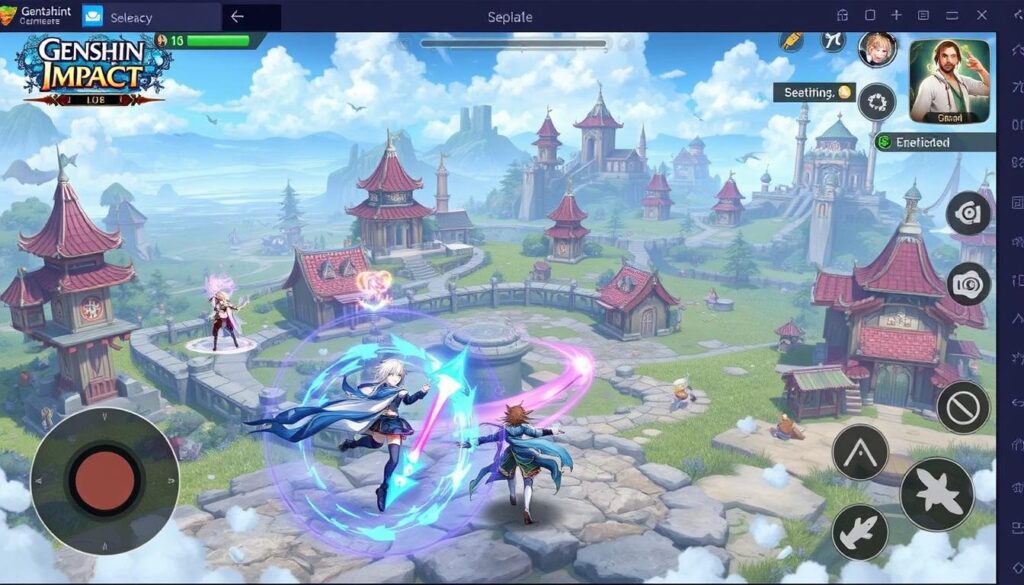
Key Success Factors:
- Cross-platform excellence – Delivering console-quality fantasy experience on mobile devices
- Elemental magic system – Creating intuitive yet deep interaction between magical elements
- Gacha monetization – Successful free-to-play model centered around collecting magical characters
- Living world design – Constantly evolving fantasy landscape with seasonal events and updates
Genshin Impact demonstrates how mobile fantasy apps can achieve console-quality experiences through careful optimization and artistic direction. Its elemental magic system creates emergent gameplay that keeps users engaged long-term, while regular content updates maintain a sense of an evolving fantasy world.
Harry Potter: Wizards Unite
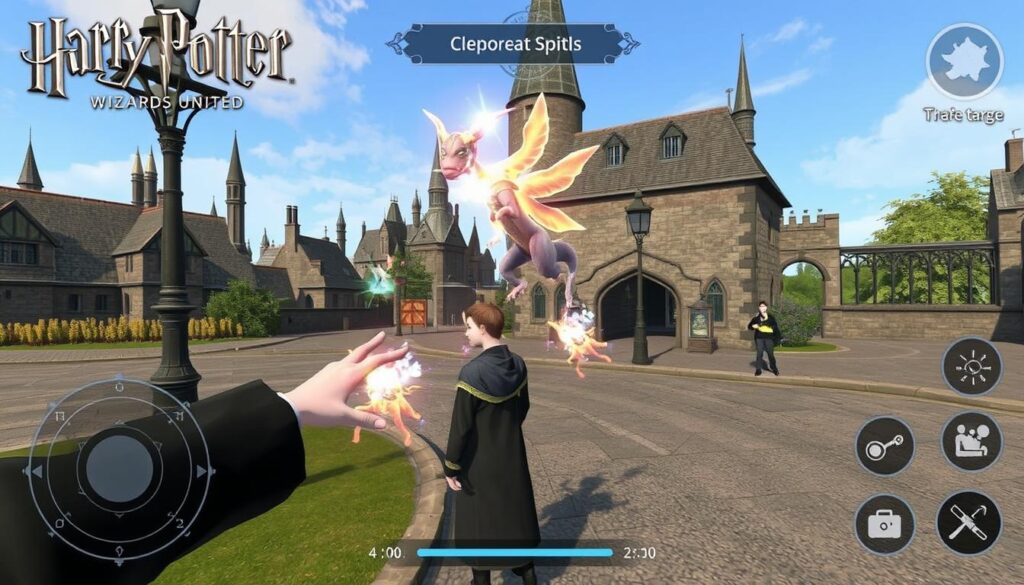
Key Success Factors:
- AR implementation – Seamlessly blending magical elements with real-world environments
- IP integration – Leveraging existing fantasy world with established fan base
- Location-based gameplay – Encouraging exploration and social interaction
- Spell-casting mechanics – Intuitive gesture controls that evoke magical feeling
While ultimately discontinued, Wizards Unite showcased innovative approaches to AR fantasy experiences. Its spell-casting system translated magical concepts into intuitive touch gestures, while its location-based design transformed familiar places into magical hotspots, creating a sense of wonder in everyday environments.
Zombies, Run!
Key Success Factors:
- Audio-driven fantasy – Creating immersion through sound design and voice acting
- Real-world integration – Blending fantasy narrative with physical activity
- Episodic content – Sustaining engagement through ongoing storytelling
- Adaptive difficulty – Personalizing the fantasy experience to user fitness levels
Zombies, Run! demonstrates how fantasy apps can extend beyond visual mediums, using audio storytelling to create immersive experiences that integrate with real-world activities. Its episodic approach to content delivery creates long-term engagement, while its adaptive systems ensure accessibility to users of varying fitness levels.
Monument Valley
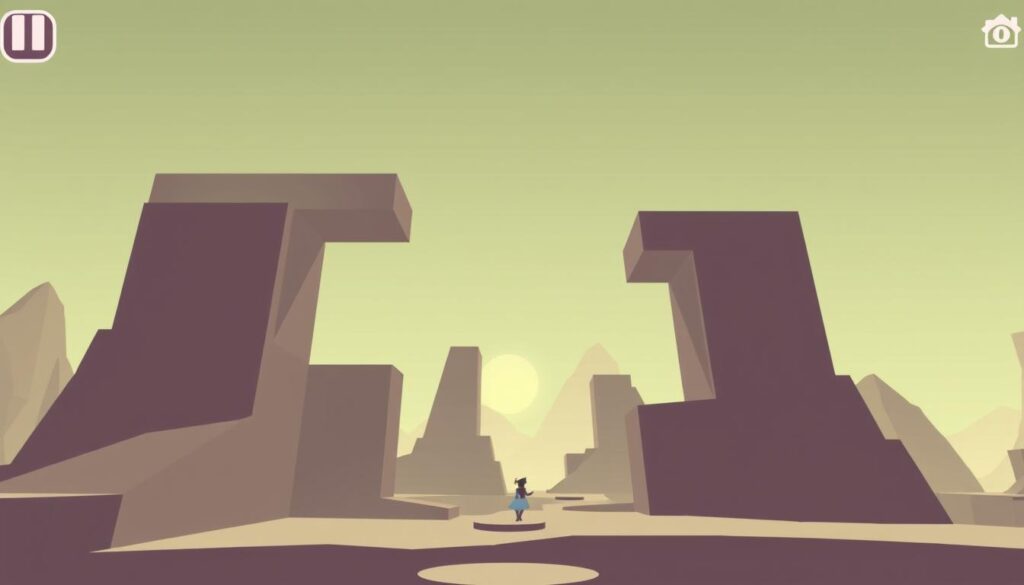
Key Success Factors:
- Distinctive art direction – Creating a unique visual language for its fantasy world
- Impossible architecture – Using optical illusions as both visual style and gameplay mechanic
- Minimalist storytelling – Conveying narrative through environment and simple interactions
- Accessibility focus – Creating fantasy experience approachable to non-gamers
Monument Valley showcases how strong artistic vision can create distinctive fantasy experiences. Its impossible architecture creates a dreamlike quality that distinguishes it from other fantasy apps, while its intuitive interaction design makes its magical world accessible to users of all skill levels.
The Elder Scrolls: Blades

Key Success Factors:
- Mobile adaptation – Translating complex RPG systems to touch interfaces
- Vertical slice design – Focusing on core fantasy elements that work well on mobile
- Progressive complexity – Gradually introducing depth to fantasy systems
- Established lore leverage – Building on rich existing fantasy universe
Blades demonstrates strategies for adapting complex fantasy RPG experiences to mobile platforms. Its focused design emphasizes elements of The Elder Scrolls experience that translate well to mobile play sessions, while its progressive introduction of systems helps new players acclimate to its fantasy world.
Sky: Children of the Light

Key Success Factors:
- Emotional design – Creating fantasy experiences focused on feelings rather than challenges
- Social mechanics – Innovative approaches to player connection in fantasy contexts
- Accessible controls – Making flight and movement feel magical yet intuitive
- Visual storytelling – Conveying narrative through environment and wordless interactions
Sky showcases how fantasy apps can prioritize emotional experiences and social connection. Its innovative approach to multiplayer interactions creates meaningful connections between players, while its focus on flying mechanics transforms movement itself into a magical experience.
These successful fantasy apps demonstrate different approaches to creating compelling digital worlds. While they vary in style, mechanics, and target audience, they share common elements: strong artistic vision, thoughtful integration of fantasy elements with technical capabilities, and innovative approaches to user engagement. By studying these examples, aspiring fantasy app developers can gain insights into effective strategies for their own magical creations.
Experience These Fantasy Worlds Yourself
The best way to understand great fantasy app design is to experience it firsthand. Download these acclaimed apps to study their approaches to immersion and engagement.
Future Trends in Fantasy App Development
The landscape of fantasy app development is constantly evolving, with emerging technologies opening new possibilities for immersive experiences. Forward-thinking fantasy app developers are already exploring these frontiers, pushing the boundaries of what’s possible in digital world-building.

Metaverse Integration
Fantasy apps are poised to become key components of the emerging metaverse, creating persistent magical realms that users can access across multiple platforms and devices. This trend points toward fantasy experiences that transcend individual apps, allowing users to carry their magical identities, abilities, and possessions across interconnected digital worlds.
We’re already seeing early examples of this with platforms that allow avatar and asset portability between different fantasy experiences. As standards develop for interoperability, fantasy app developers will need to consider how their worlds can connect to larger digital ecosystems while maintaining their unique magical identity.
AI-Generated Content
Artificial intelligence is revolutionizing content creation for fantasy apps, enabling dynamically generated worlds, characters, and narratives that respond to user actions. Advanced machine learning models can now generate unique magical creatures, craft personalized quest narratives, and even create dynamic dialogue for non-player characters.
This technology promises to solve one of fantasy app development’s biggest challenges: creating enough content to maintain long-term engagement. Rather than manually crafting every element of a fantasy world, developers can create systems that generate infinite variations while maintaining consistent world rules and aesthetic quality.
Advanced Haptics & Sensory Feedback
The next frontier in fantasy immersion involves engaging more of the user’s senses. Advanced haptic feedback systems can now simulate the sensation of casting spells, wielding magical weapons, or interacting with fantastical creatures. Combined with spatial audio and even experimental olfactory devices, these technologies create multi-sensory fantasy experiences.
As these technologies become more accessible, fantasy app developers will need to consider how to design for a fuller sensory palette, creating magical experiences that users can literally feel as well as see and hear.
Blockchain & Digital Ownership
Blockchain technology is transforming how users relate to digital assets in fantasy worlds. Non-fungible tokens (NFTs) enable true ownership of magical items, creatures, and land within fantasy apps, creating new economic models and investment opportunities within these digital realms.
This technology enables fantasy items to have genuine scarcity and provable history, adding new dimensions to collecting and trading within fantasy worlds. For developers, this creates opportunities for new monetization models and user engagement strategies centered around digital ownership and value creation.
Cross-Reality Experiences
The boundaries between digital fantasy and physical reality are increasingly blurring through mixed reality technologies. Advanced AR systems can now create persistent fantasy layers over physical locations, allowing magical elements to exist in shared spaces visible to multiple users through their devices.
This trend points toward fantasy experiences that aren’t confined to screens but extend into the physical world—magical creatures that appear in city parks, enchanted portals in public spaces, and fantasy quests that lead users through real-world locations enhanced with digital magic.
Emotional & Biometric Responsiveness
Emerging technologies can now detect users’ emotional states through facial recognition, heart rate monitoring, and other biometric indicators. Fantasy apps are beginning to incorporate these inputs to create experiences that respond not just to explicit commands but to the user’s emotional state.
This enables fantasy worlds that adapt their mood, difficulty, and narrative tone based on how the user is feeling—intensifying the excitement when users are engaged, offering comfort when they’re stressed, or providing greater challenges when they’re confident.
“The future of fantasy app development isn’t just about better graphics or more complex systems—it’s about creating magical experiences that respond to who we are, adapt to how we feel, and seamlessly blend with our everyday reality. We’re moving toward a world where the line between the magical and the mundane becomes wonderfully blurred.”
For developers entering the fantasy app space, these trends represent both challenges and opportunities. Creating experiences that leverage these emerging technologies requires new skills and approaches, but also opens possibilities for magical experiences that were previously impossible. The most successful fantasy app developers of tomorrow will be those who can harness these technologies while maintaining focus on the core elements that make fantasy compelling: wonder, discovery, and transformation.
Stay Ahead of Fantasy Development Trends
Join online communities where fantasy app developers share insights, techniques, and updates on emerging technologies shaping the future of immersive experiences.
Getting Started as a Fantasy App Developer
Embarking on the journey to become a fantasy app developer may seem daunting, but with the right approach, anyone with passion and dedication can begin creating magical digital experiences. Here’s a roadmap to help aspiring fantasy app developers take their first steps into this enchanting field.
Build Your Foundational Skills
- Learn programming fundamentals – Start with languages commonly used in fantasy app development like C#, JavaScript, or Python
- Explore game engine basics – Follow beginner tutorials for Unity or Unreal Engine to understand core concepts
- Study art fundamentals – Even if you’re not an artist, understanding color theory, composition, and fantasy art styles will improve your projects
- Practice 3D modeling – Start with simple objects in Blender or similar free tools before attempting complex fantasy creatures
- Develop storytelling skills – Study narrative design principles and world-building techniques specific to interactive media

Recommended Learning Resources
| Resource Type | Recommended Options | Best For | Cost |
| Online Courses | Udemy “Complete Unity Developer”, Coursera “Game Design and Development” | Structured learning with practical projects | $15-$200 |
| YouTube Channels | Brackeys, Sebastian Lague, Sykoo | Visual tutorials and specific techniques | Free |
| Documentation | Unity Manual, Unreal Engine Documentation | Technical reference and best practices | Free |
| Community Forums | Unity Forums, Unreal Engine Forums, Reddit r/gamedev | Problem-solving and community support | Free |
| Game Jams | Ludum Dare, Global Game Jam, itch.io jams | Practical experience and portfolio building | Free |

Start Small, Think Magical
Many aspiring fantasy app developers make the mistake of attempting overly ambitious projects from the start. Instead, begin with small, focused projects that incorporate just one or two magical elements:
- A simple spell-casting mechanic using touch gestures
- A procedurally generated fantasy landscape with basic exploration
- A character customization system for fantasy avatars
- A magical inventory system with interactive fantasy items
These smaller projects will help you build confidence and develop specific skills while actually completing work you can showcase. As you master individual elements, you can gradually combine them into more complex fantasy experiences.
Join the Fantasy Developer Community
Fantasy app development thrives on collaboration and shared knowledge. Connecting with other developers can provide inspiration, technical support, and valuable feedback on your projects. Consider these ways to engage with the community:
Online Communities
- Discord servers focused on game and app development
- Reddit communities like r/gamedev and r/fantasydev
- Twitter #gamedev and #fantasydev hashtags
- Facebook groups for Unity, Unreal, and other engine users
Events & Jams
- Game jams with fantasy themes
- Virtual conferences like GDC and Unite
- Local meetups for app developers
- Fantasy-focused hackathons
Collaboration Opportunities
- Partner with fantasy artists and writers
- Contribute to open-source fantasy projects
- Offer to help test other developers’ fantasy apps
- Join fantasy app development teams seeking volunteers
Pro Tip: Document Your Journey
Start a development blog or social media account to share your progress as you learn fantasy app development. This not only helps you track your own growth but also connects you with other developers and potential collaborators. Many successful fantasy app developers began by simply sharing their experiments and learning process publicly.
Remember that becoming a fantasy app developer is itself a hero’s journey—you’ll face challenges, discover new abilities, and gradually transform from a novice into a creator of magical experiences. Start small, stay curious, and keep experimenting with new ways to bring fantasy elements to digital life. With persistence and passion, you’ll be crafting immersive magical worlds that captivate users and transport them beyond the ordinary.
Begin Your Fantasy Development Journey Today
Download free development tools and access beginner-friendly tutorials specifically designed for aspiring fantasy app creators.
Conclusion: The Magical Future of Fantasy App Development
As we’ve explored throughout this article, fantasy app development represents a unique fusion of technical expertise and creative vision—a digital alchemy that transforms code into magical experiences. The developers who craft these immersive worlds are indeed modern-day wizards, wielding programming languages instead of spells, and design principles instead of potions, yet achieving results that feel no less magical to users.
The field continues to evolve at a breathtaking pace, with emerging technologies constantly expanding the possibilities for creating more immersive, responsive, and personalized fantasy experiences. From AI-generated content that creates endless variations of magical worlds to cross-reality experiences that blend fantasy elements with our physical environment, the boundaries of what’s possible are constantly being pushed further.
For those inspired to begin their own journey into fantasy app development, there has never been a better time to start. Accessible tools, supportive communities, and abundant learning resources have democratized the creation process, making it possible for passionate individuals to bring their magical visions to life without massive teams or budgets.
Whether you’re drawn to creating epic fantasy games, enchanted storytelling experiences, or magical utility apps that add wonder to everyday tasks, the skills and insights shared in this article provide a foundation for your creative journey. Remember that every legendary fantasy app developer started with a first project, a first line of code, a first magical interaction—the key is to begin, experiment, and persist.
The future of fantasy app development belongs to those who can balance technical mastery with creative vision, who understand both the limitations of current technology and the unlimited potential of human imagination. As you embark on or continue your development journey, remember that you’re not just creating apps—you’re crafting portals to other worlds, experiences that transport users beyond the ordinary and into realms of possibility and wonder.

Ready to Create Your Own Magical Worlds?
Join a global community of fantasy app developers sharing resources, inspiration, and support for creators at all skill levels.










